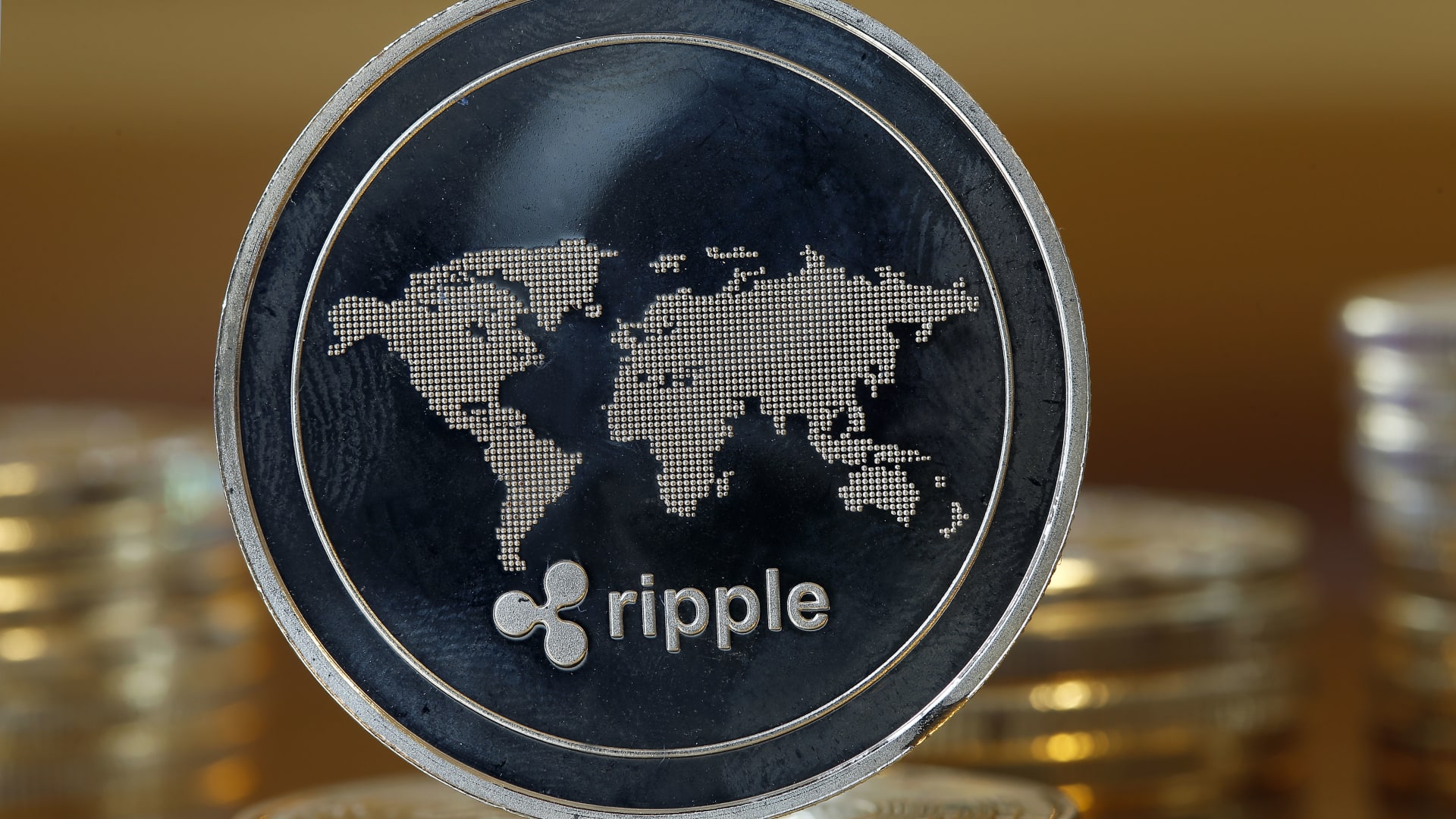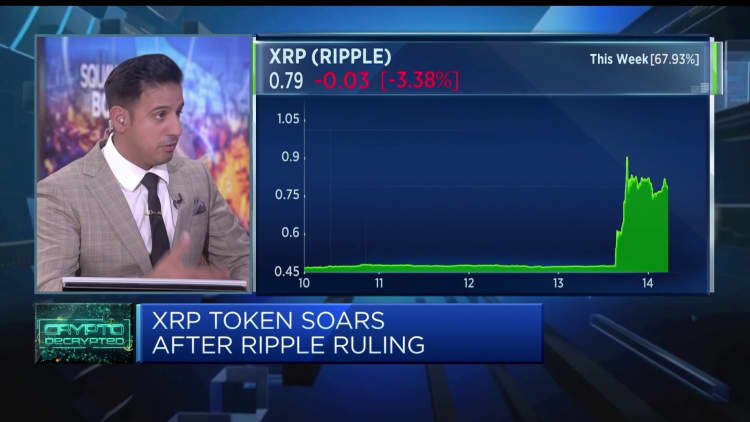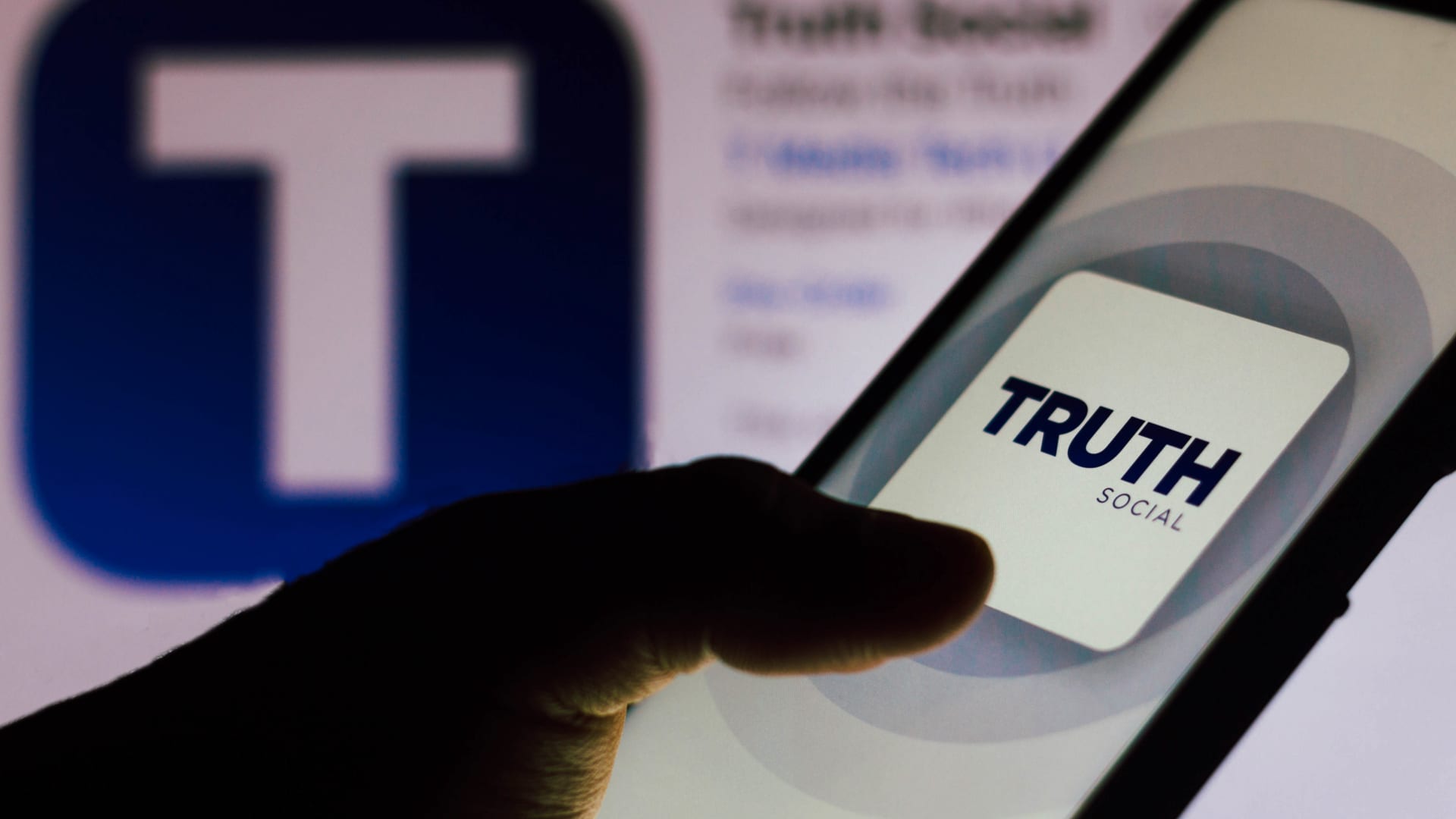Ripple hopes that the judge’s decision in the SEC case will lead to US banks using XRP

This photo illustration shows a visual representation of the digital cryptocurrency Ripple on January 30, 2018 in Paris, France.
Chesnot | Getty Images
Blockchain startup Ripple is confident that US banks and other financial institutions in the country will begin to show interest in adopting XRP in cross-border payments after a landmark ruling determined that a token is not necessarily a security in itself.
The San Francisco-based firm expects to begin talks with US financial companies to use its On-Demand Liquidity (ODL) product, which uses XRP for money transfers, in the third quarter, Ripple General Counsel Stu Alderotti told CNBC . last week.
related investing news

Last week, a New York judge handed down a landmark ruling for Ripple, ruling that XRP, a cryptocurrency with which Ripple is closely linked, is itself “not necessarily a security,” partially challenging claims by U.S. securities and exchanges. Commission v Company.
For the past three years, Ripple has been battling the SEC over the agency’s allegations that Ripple and two of its executives conducted an illegal $1.3 billion offering by selling XRP. Ripple disputed the claims, insisting that XRP cannot be considered a security and is more like a commodity.
As a result, Ripple’s business suffered and the company lost at least one customer and investor. MoneyGram, the American money transfer giant, has dropped its partnership with Ripple in March 2021.
Meanwhile, Tetragon, a UK investor that previously backed Ripple, sold its stake back to Ripple after unsuccessfully trying to sue the company to get its money back.
Asked if the decision meant US banks would return to Ripple to use its ODL product, Alderotti said: “I think the answer to that is yes.”
Ripple also uses blockchain in its business to send messages between banks, like the blockchain alternative Swift.
“I think we hope that this decision will give financial institution customers or potential customers the comfort to at least come in and start a conversation about the challenges they’re facing in their business, the real challenges in terms of moving value across borders without being charged obscene fees.” Alderotti told CNBC on Friday.
“Hopefully this quarter will lead to a lot of conversations with customers in the United States, and hopefully some of those conversations will actually translate into real business,” he added.

Ripple now does most of its business outside of the US, and Alderotti previously told CNBC that “[Ripple]its customers and its profits are outside the US, even though we still have many employees in the US,” he added.
Ripple has more than 900 employees worldwide, about half of which are based in the US
XRP is the cryptocurrency that Ripple uses to move money across borders. It is currently the fifth largest cryptocurrency in circulation with a market cap of $37.8 billion.
The company uses the token as a “bridge” currency between transfers from one fiat currency to another – for example, from US dollars to Mexican pesos – to solve the problem of having to pre-fund accounts at the other end of the transfer to wait for the money to be processed.
Ripple says XRP can enable the movement of money in fractions of a second.
However, the decision did not mean a complete victory for Ripple. Although the judge stated that XRP is not a security, they also stated that some sales of the token did qualify as securities transactions.
For example, about $728.9 million in XRP sales to institutions the company worked with did qualify as securities, the judge said, saying there was a common enterprise with an expectation of profit.
Alderotti acknowledged that this is not a complete victory for Ripple and that the company will study the decision in due course to see how it affects its business.
“She [Judge Analisa Torres] found – although we disagreed with it – that our previous sales directly to institutional buyers had the attributes of a security and should have been registered,” he said.
He said that this component of the ruling will not affect Ripple’s business as its customers are mostly located outside the US
“We will study the judge’s decision, we will look at the needs of our customers to look at the market and see if there is a situation here that fits the four sides of what the judge found when it comes to institutions,” he said.




